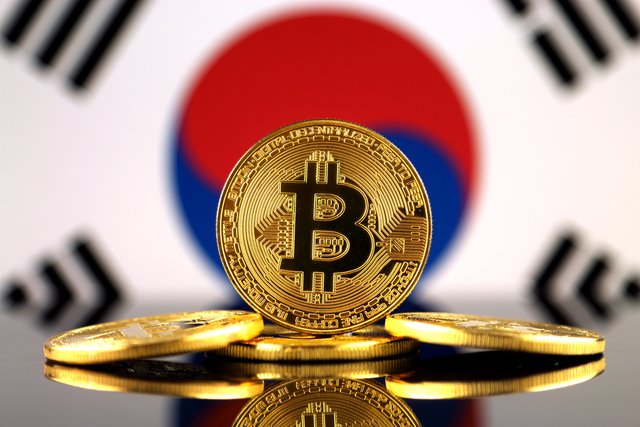News #South Korean Regulators Inch Closer to Legalizing Bitcoin

The cryptocurrency situation in South Korea is constantly evolving. For the longest time, people have awaited official regulatory guidelines. They are slowly coming to fruition, which would label virtual currencies as “liquid assets”. It’s an interesting development that will bring some positive momentum to cryptocurrencies.
BITCOIN COULD BECOME A LIQUID ASSET IN SOUTH KOREA
No one will deny South Korea has become one of the more important cryptocurrency markets as of right now. Ever since China decided to virtually ban all CNY-based trading, South Korea and Japan have been trying to take its place. So far, South Korean exchanges have outpaced those of Japan in terms of their trading volume and number of listed currencies. Whether or not that will remain the case is a different matter altogether.
One advantage Japan offers in terms of cryptocurrency is that it officially legalized this new form of money some time ago. Japan is also one of the very few countries around the world actively taking steps toward regulating Bitcoin and other cryptocurrencies in a positive manner. Most other countries have maintained a wait-and-see approach, even though a few others are working on developing some degree of a legal framework.
With South Korea preparing to issue its regulatory guidelines, things are about to get interesting. The Korea Accounting Institute claims the new regulation will be ready in March and will label Bitcoin and altcoins as “liquid assets”. The way things stand today, cryptocurrencies are a non-current asset. A more “legitimate” regulatory approach will be beneficial to Bitcoin and altcoins moving forward.
Do keep in mind there has not been any official information to confirm that this is how the regulation of cryptocurrencies will work. For now, it is a statement made by an official representative of the Korea Accounting Institute, but until it is turned into law, this information needs to be taken with a grain of salt. It would certainly open up a lot of new opportunities in the future if that is, in fact, the way this attempt at regulation will play out.
For the time being, the KAI will continue to create standards for Bitcoin and other cryptocurrencies. When this preliminary work is completed, it will be presented to the government. Even then, it is not guaranteed Bitcoin and other currencies will be labeled as liquid assets, as the proposal will still have to be approved by the government. Such a process could take anywhere from a few weeks to several months, if not years.
It is evident that cryptocurrency matters to South Korea in many ways. For now, the overall interest in this new form of money has not diminished in the slightest, even though things could head in a very different direction at any time. Without the support of South Korea, cryptocurrencies would face a steep uphill battle. Only time will tell how things evolve in this regard.
from https://themerkle.com/south-korean-regulators-inch-closer-to-legalizing-bitcoin/
It is clear that the power groups are trying to shelter the control status on wealth, which is a storm for them. That's why they achieve their objectives partially, the big difference between the statist groups and the cryptography community is in the purpose unit, all the open source encrypted currencies actually have a unique, practical and specific purpose that is based on the theme libertarian, while the dominant groups do not seemed to have such unity because if we see for example the case of China truly aggressive in its policy against the criptocurrencys, we also look to Japan wanting to be with the con with the paradigm of the encrypted finances, or Korea in search of a strong but flexible control on the transactions of bitcoin and altcoins, and even the very strange experiment that Venezuela threw when implement your own market token. It seems that they did not know what to do before the advance of this technology supported in blockchain, and this is one reason more by which they will not achieve the objective to control the criptocurrencys.